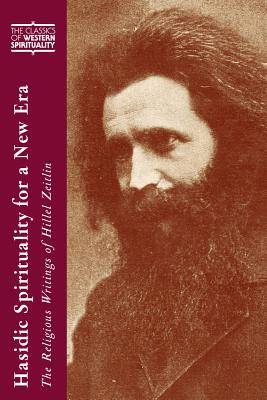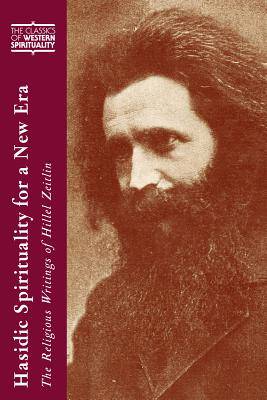
Je cadeautjes zeker op tijd in huis hebben voor de feestdagen? Kom langs in onze winkels en vind het perfecte geschenk!
- Afhalen na 1 uur in een winkel met voorraad
- Gratis thuislevering in België vanaf € 30
- Ruim aanbod met 7 miljoen producten
Je cadeautjes zeker op tijd in huis hebben voor de feestdagen? Kom langs in onze winkels en vind het perfecte geschenk!
- Afhalen na 1 uur in een winkel met voorraad
- Gratis thuislevering in België vanaf € 30
- Ruim aanbod met 7 miljoen producten
Zoeken
Hasidic Spirituality for a New Era
The Religious Writings of Hillel Zeitlin
€ 34,95
+ 69 punten
Omschrijving
Hillel Zeitlin (1871-1942) was the leading neo-Hasidic thinker in interwar Poland. He retooled classic concepts of the Jewish mystical tradition to shape a Judaism that would appeal to a new generation of Jews in the early twentieth century, liberated from the bonds of traditional society but seeking a profound, open-minded, and universalistic version of Jewish teachings. His work complements that of his contemporary, Martin Buber. While Buber looked primarily to the Hasidic tales for inspiration, Zeitlin offered a version of Hasidic theology addressed to seekers who lived outside the Hasidic community. Largely neglected in the postwar era, Zeitlin's writings will have much to say both to contemporary Jews in search of ways to reembrace mystical teachings as a part of their tradition and to Christians interested in modern expressions of classic mystic truths that reach across all conventional borders. Zeitlin was martyred in the Warsaw Ghetto in 1942. This is the first time his works have been translated into English. +
Specificaties
Betrokkenen
- Vertaler(s):
- Uitgeverij:
Inhoud
- Aantal bladzijden:
- 272
- Taal:
- Engels
- Reeks:
Eigenschappen
- Productcode (EAN):
- 9780809106035
- Verschijningsdatum:
- 4/09/2012
- Uitvoering:
- Hardcover
- Formaat:
- Genaaid
- Afmetingen:
- 160 mm x 231 mm
- Gewicht:
- 521 g

Alleen bij Standaard Boekhandel
+ 69 punten op je klantenkaart van Standaard Boekhandel
Beoordelingen
We publiceren alleen reviews die voldoen aan de voorwaarden voor reviews. Bekijk onze voorwaarden voor reviews.








